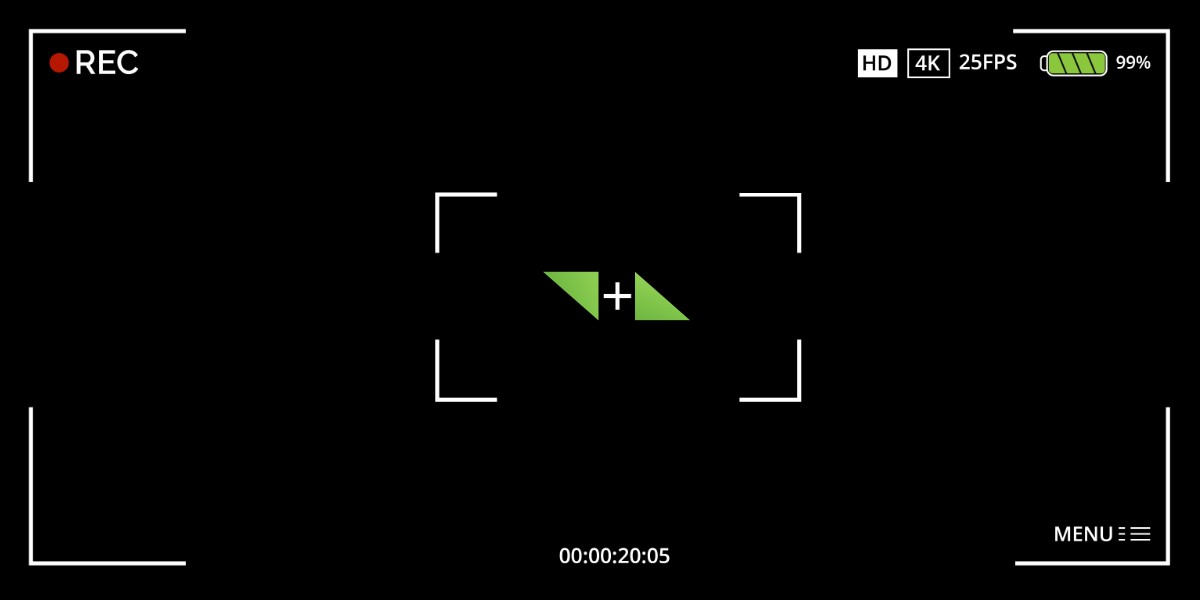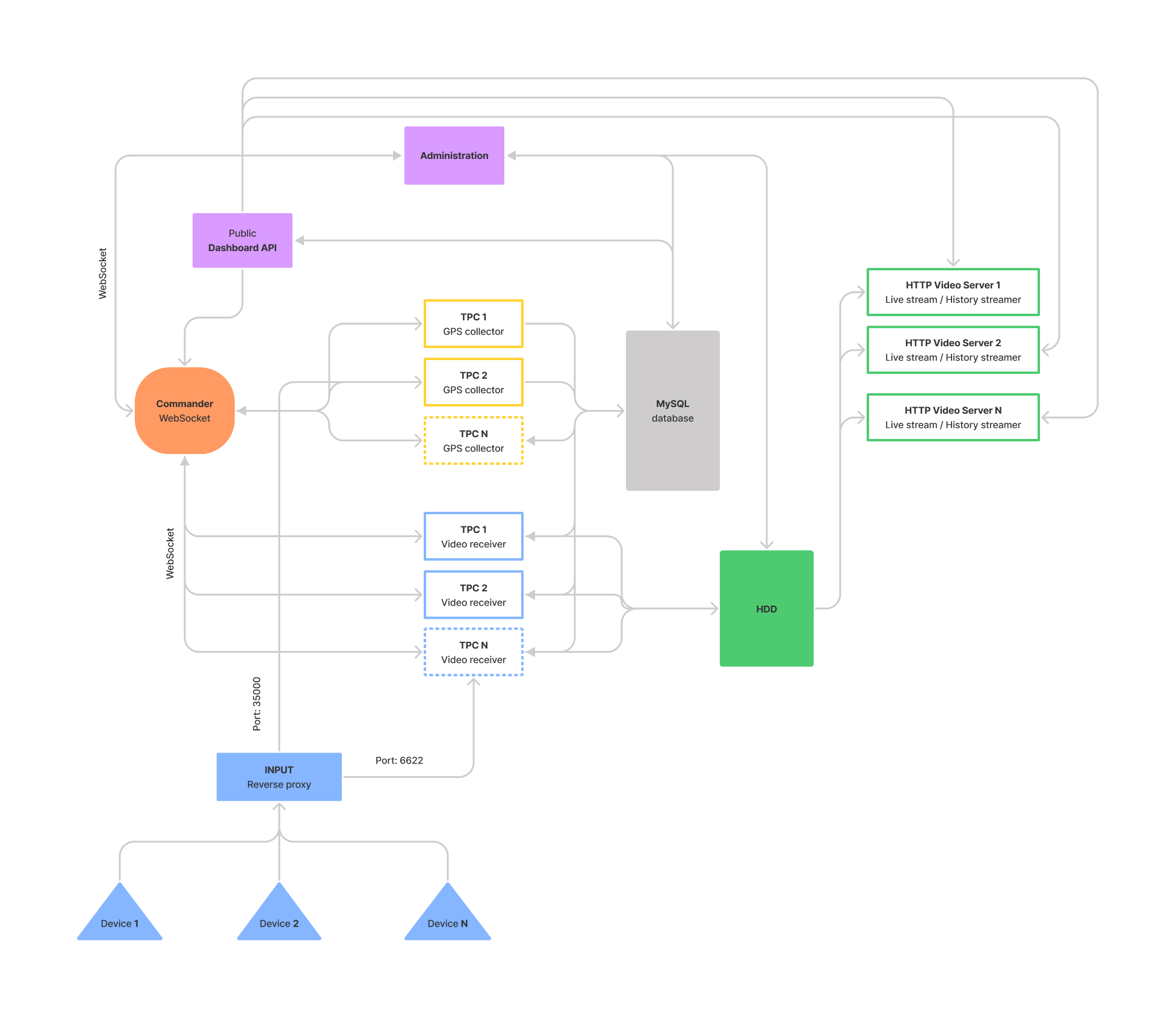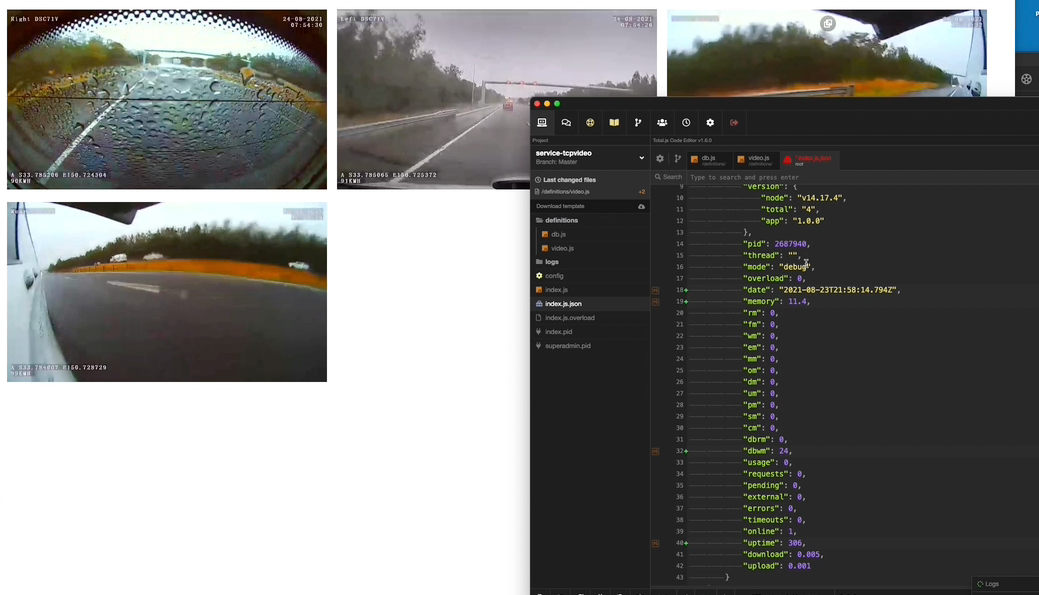We have worked on processing live streams from GPS devices with the help of the Total.js framework.

Processing live video stream in Node.js
We have prepared a simple solution for processing real-time data from GPS devices for one of our customers. Devices communicate on two different ports, one for GPS data and the second for binary data like live video streaming or recorded incident videos. And this blog post will be about live video streaming on the Node.js platform and with the help of the Total.js framework.
Architecture
The architecture for this project is not complicated. The project is collected from several apps and APIs written in the pure JavaScript / Total.js framework. In addition, every app is optimized for the cluster. Finally, we have used MySQL database because the customer demanded it.
Design architecture for this project

Live streaming
We have created a small Total.js video service with a TCP server that can be clusterized. The video service receives text messages combined with binary data. So, the binary data for live stream video contains chunks of H264 videos, such as I-FRAMES and B-FRAMES (P-FRAMES are missing).
We assume that the service with the video TPC server can process around 5-20 live streams (maybe more). Of course, everything depends on the video quality. The big CPU consumer is the FFMPEG tool.
Collected video data isn't playable (maybe the problem can be in missing P-FRAMES). So our service collects chunks and divides them into small 100-150 kB files. In addition, each file contains between 3-8 seconds of video. Then our service converts these files via FFMPEG into the Video Transport Stream File with the .ts extension, and after the end, the service prepares the m3u8 file with the list of last processed videos. A duration for converting videos takes around ~3-10 seconds via FFMPEG, but it depends on the video quality and server hardware.
Here is the content of one of our m3u8 lists:
All video files are handled by another app called HTTP Video Server that can be clusterized quickly too. However, the HTTP Video Server app sends only existing .ts videos and m3u8 lists to all online clients.
Web browser compatibility
Our m3u8 content works on all modern web browsers like Chrome, Safari, iPhone Safari, Android Chrome, and directly in the QuickTime or VLC player.
We had problems with the Chromium browsers because a browser played only the first video and then stopped. Also, we solved the problem by adding the #EXT-X-DISCONTINUITY phrase. One more important thing is that Chromium browsers are sensitive to the exact video duration defined in the #EXTINF:7.08 word.
We have tested browser compatibility with the help of this web application: https://m3u8player.net. Here is a small screenshot from our test environment:

Other posts from Total.js Platform
- 2026-02-02January report 2026
- 2026-01-02December report 2025
- 2025-12-15Totally Merry Christmas and a Happy New Year 2026!
- 2025-12-01November report 2025
- 2025-11-02October report 2025
- 2025-10-22New universal drivers for IoT Platform
- 2025-10-13IoT Platform Update: New Features and Enhancements
- 2025-10-01September report 2025
- 2025-09-05How to create Google Gemini AI component in Total.js Flow
- 2025-09-01August report 2025

